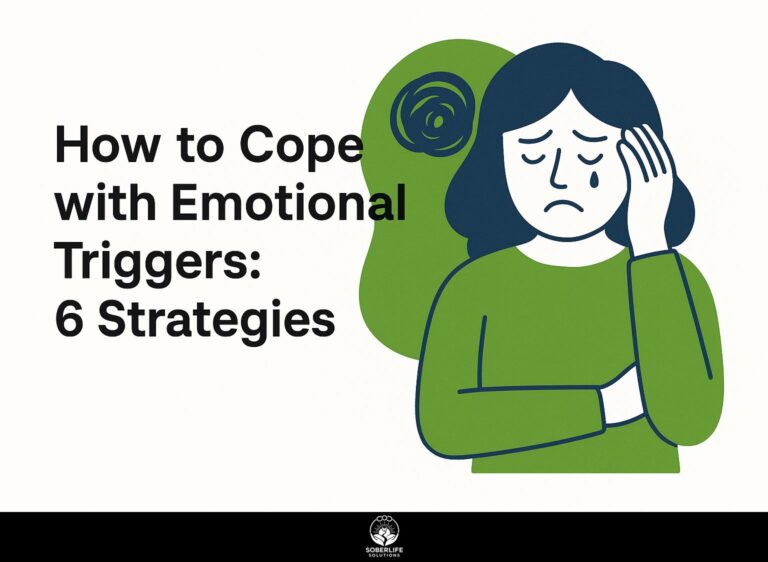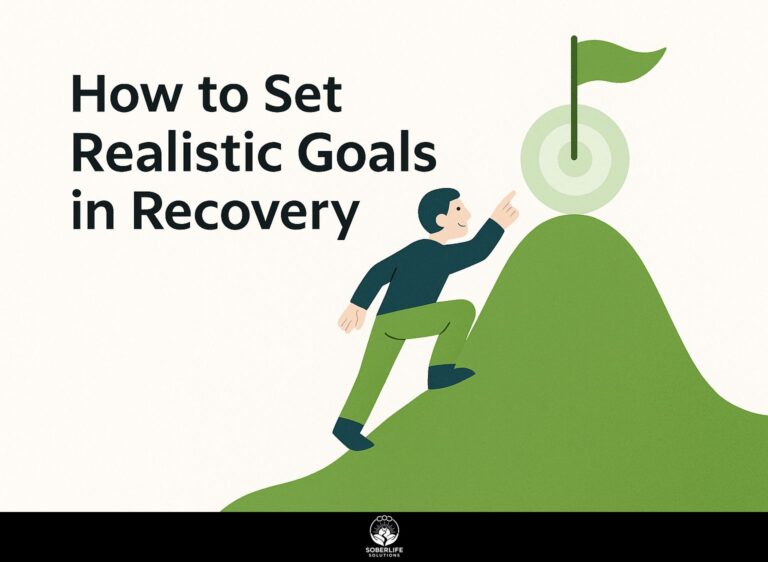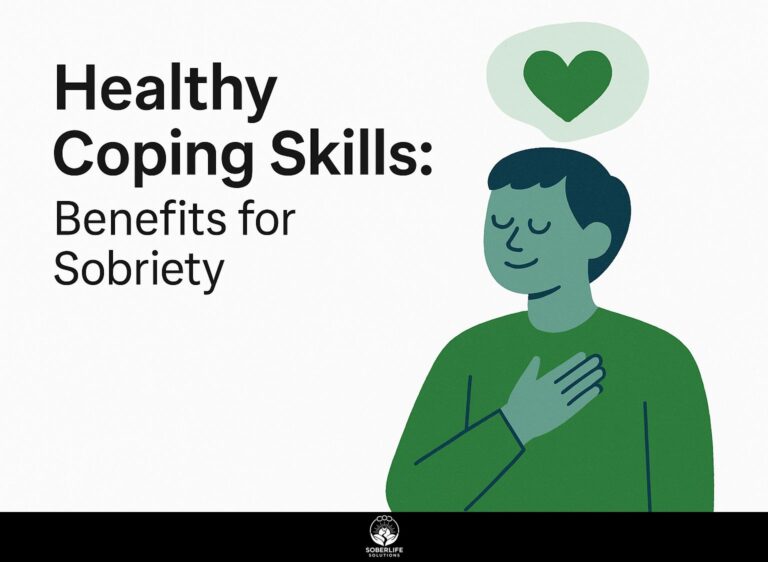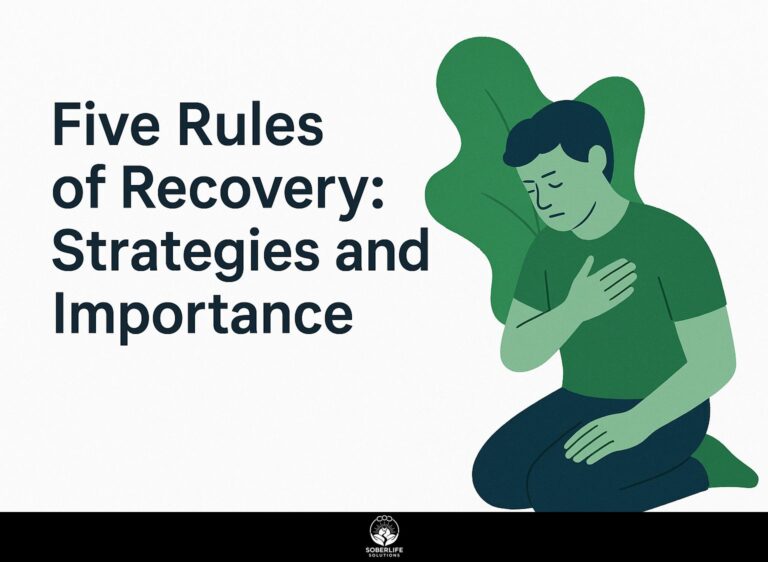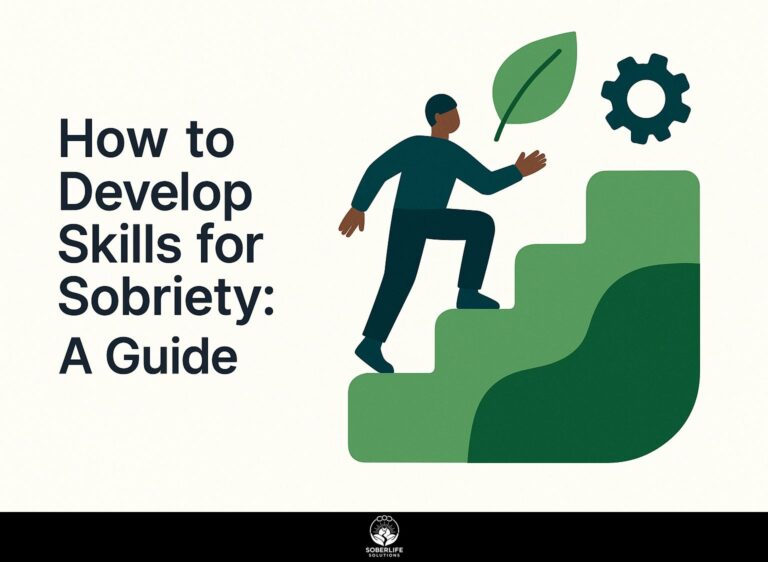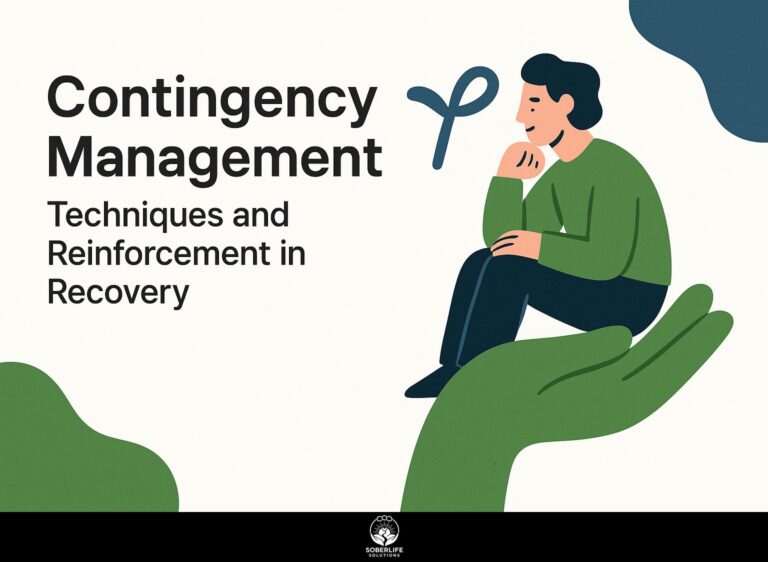How to Develop Healthy Habits: 10 Steps for Recovery
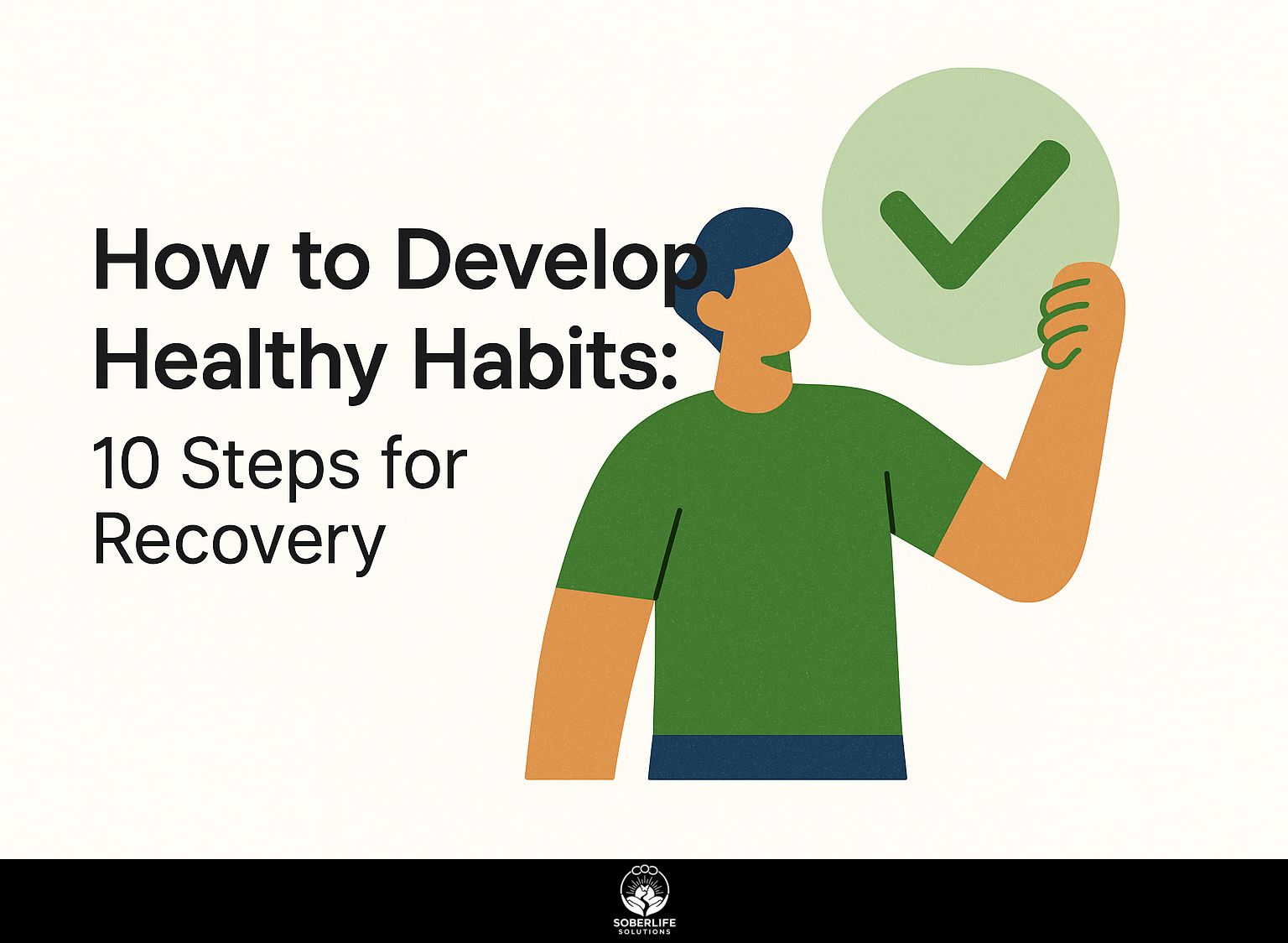
Recovering from addiction requires more than just willpower; it demands the development of healthy habits that support emotional health and maintain sobriety. In Long Beach, organizations like Bold Steps Behavioral Health and Roots Through Recovery provide crucial support for people looking to make significant changes in their lives. This article describes 10 important steps to help you build long-term recovery, so you can succeed on your path to health. Learn how minor adjustments can create significant outcomes.
Key Takeaways:
Step 1: Acknowledge the Need for Change
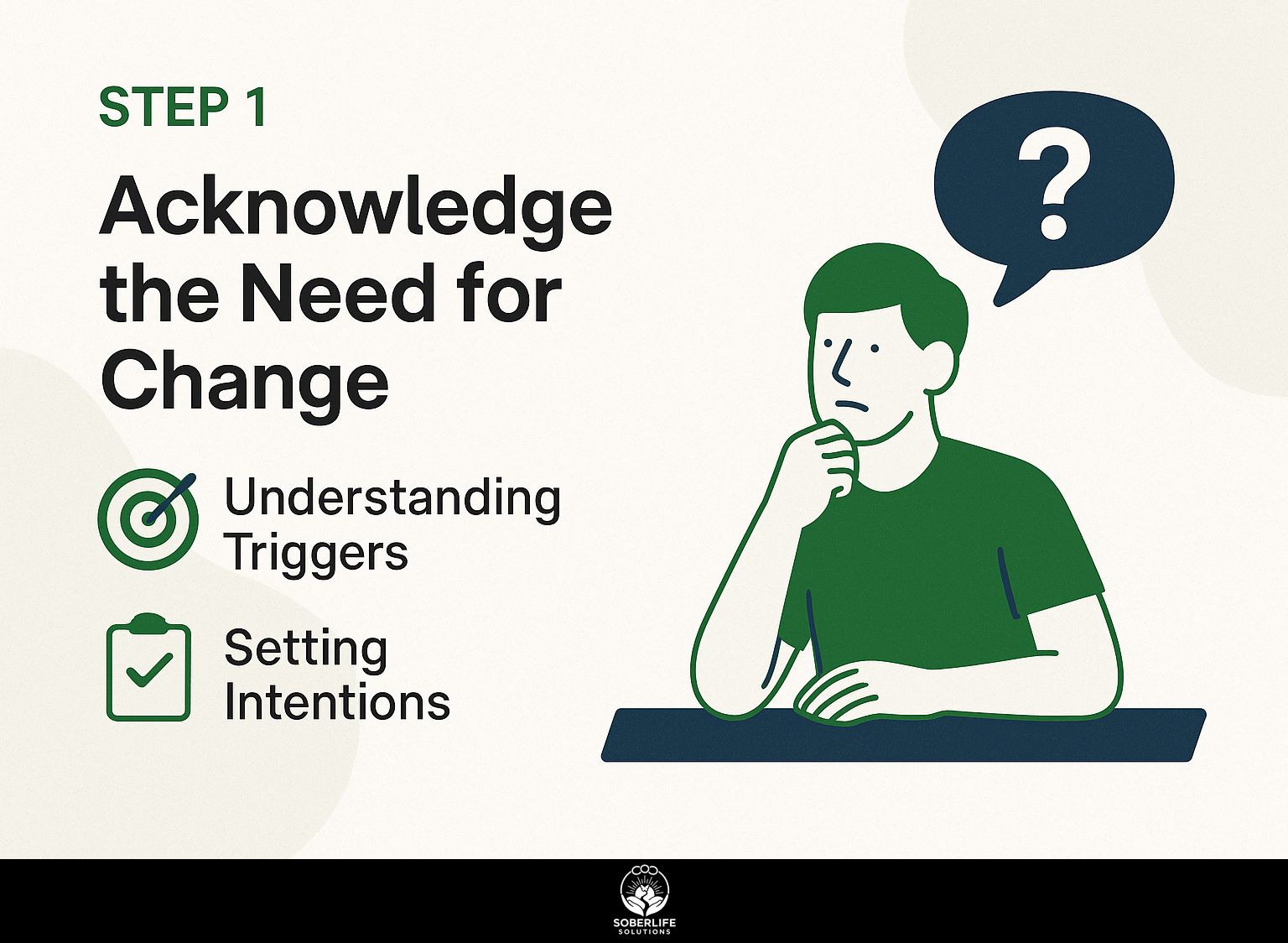
Realizing that change is needed is the first important step in improving, setting the groundwork for building good habits. Curious about how decluttering emotional baggage can enhance this process? Understanding and addressing past burdens can significantly ease the path to positive change.
Understanding Triggers
Identifying personal triggers-situations or emotions leading to substance use-is essential for relapse prevention and emotional regulation.
Common triggers include stress, social situations, and negative emotions. To manage feelings well, try writing in a journal to think about your emotions, or consider therapy for professional help.
Another useful way is to build a group of friends or family who know your goals. By talking about what sets you off, you can strengthen your responsibility and learn from what others have been through.
Creating a daily routine that includes mindfulness practices, like meditation or breathing exercises, can improve your emotional strength and reduce impulsive actions. Research findings from ScienceDirect suggest that responding effectively to triggers, particularly location-based ones, can significantly aid in managing cravings.
Setting Intentions
Setting clear goals improves focus and dedication, which are important for dealing with the challenges of overcoming addiction.
To develop your plans, begin by putting them on paper with phrases like “I plan to…” For example, you might write, “I plan to practice mindfulness daily” or “I plan to attend weekly support meetings.” Writing them down helps make your goals clear and improves your responsibility.
Share these intentions with a trusted friend or support group, as discussing them can further solidify your commitment. Think about your goals regularly to stay focused on getting better.
Step 2: Set Realistic Goals
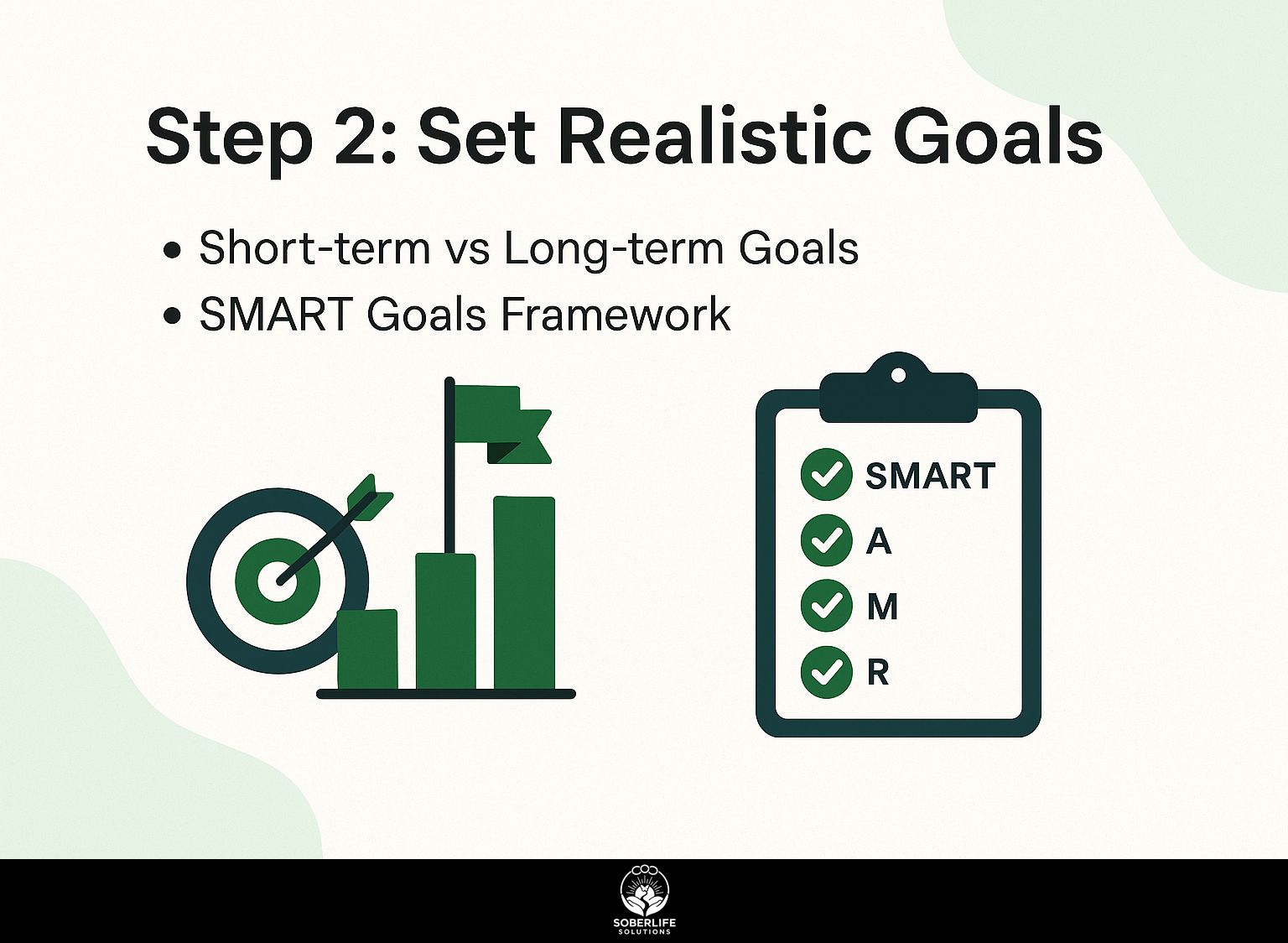
Setting achievable goals allows people recovering from addiction to see their progress and stay motivated during their recovery process.
Short-term vs Long-term Goals
Balancing short-term and long-term goals can increase motivation, giving immediate rewards and long-lasting benefits.
Short-term goals might include attending a weekly support group or committing to daily journaling, which offer immediate emotional feedback and a sense of community.
Alternatively, long-term goals could involve completing an entire treatment plan, which requires continuous effort and commitment over several months.
To be more organized, try dividing your big goals into smaller steps, like setting targets each month to track your progress.
This way, you can enjoy small achievements while focusing on the overall goal of recovery. Sometimes, achieving these goals might require additional support; as mentioned in our guide on when to ask for professional help, knowing when to seek help is crucial for sustained progress.
SMART Goals Framework
The SMART method (Specific, Measurable, Achievable, Relevant, Time-bound) is a way to set goals that are clear and easier to complete.
For example, consider someone in recovery from addiction. An example goal could be, “I plan to go to three support group meetings each week for the next two months to expand my support network.”
This goal is specific (three meetings), measurable (tracking attendance), achievable (attend local meetings), relevant (focused on recovery), and time-bound (within two months).
By dividing a big goal into smaller, organized steps, individuals can keep track of their progress and make changes as needed. According to MindTools, a respected source, using SMART goals can significantly improve goal-setting efficacy.
Step 3: Create a Support System
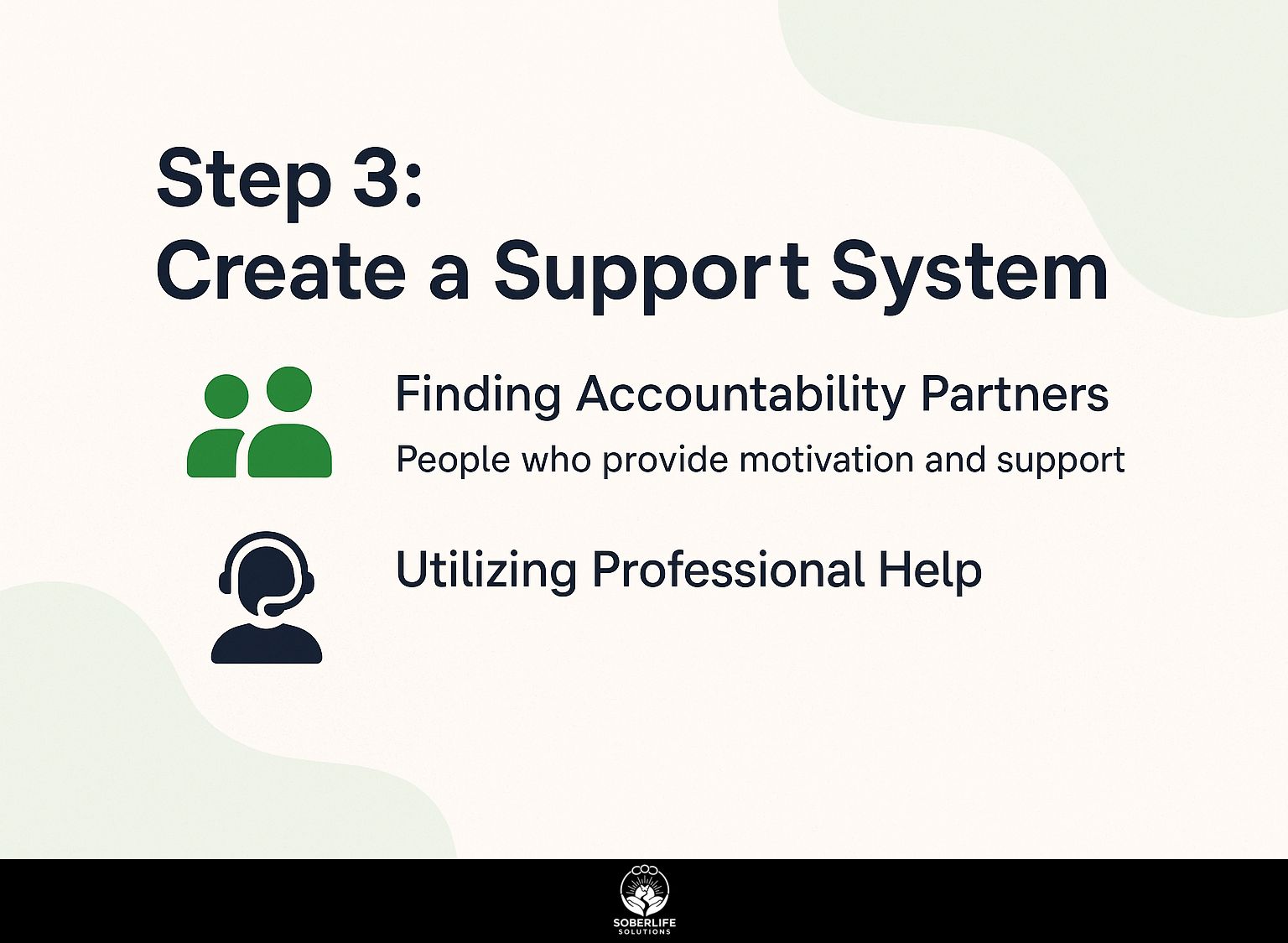
A strong support system is essential in recovery, providing organized help for dealing with daily problems and staying on track. For those interested in exploring various ways to build such a system, our guide on sober support systems that help offers valuable insights.
Finding Accountability Partners
Finding people who can help hold each other accountable can offer a support system for those recovering, giving them emotional and practical help.
To find accountability partners, start by engaging with local support groups like Alcoholics Anonymous or Narcotics Anonymous, where individuals share common experiences.
Consider social media platforms or forums dedicated to recovery topics; websites like Reddit and Facebook host various support groups.
When building these relationships, keep communication open by planning regular meetings, either face-to-face or online. Establish mutual goals to keep each other motivated. This mutual support improves the partnership, helping you recover more effectively.
Utilizing Professional Help
Working with professional counselors and support groups can offer important help and methods for successful addiction recovery.
Different therapeutic approaches can be particularly beneficial. For instance, Cognitive Behavioral Therapy (CBT) focuses on changing negative thought patterns, which can help you tackle cravings and triggers. To explore its effectiveness in addiction recovery, consider this comprehensive analysis by Verywell Mind.
Support groups such as Alcoholics Anonymous (AA) help build connections and responsibility. To learn more about Bold Steps Behavioral Health, check out their website or call them to begin services.
Considering online therapy platforms like BetterHelp allows flexibility for those maintaining commitments to work or family. Establishing regular sessions can contribute significantly to long-term recovery.
Step 4: Develop a Routine
Having a regular daily schedule is important for dealing with the ups and downs of recovery and creating steadiness.
To create your routine, start by incorporating essential activities that support your well-being. Set specific times for each activity, like mindfulness (10 minutes in the morning using an app like Headspace), followed by a 30-minute workout session through a platform like MyFitnessPal.
Plan a weekly meeting for recovery, perhaps on Thursdays at 7 PM. Use tools such as Google Calendar to hold yourself accountable and visualize your schedule.
By regularly sticking to this approach, you build strength and improve how you bounce back.
Step 5: Focus on Nutrition
Eating well is important for recovery, helping both your body and mind, and reducing cravings.
To improve recovery with nutritious meals, think about preparing meals in advance as a helpful method. Start by planning a week’s worth of meals filled with lean proteins, whole grains, and colorful vegetables.
Use MyFitnessPal to monitor your calories and check that you reach your nutrition targets. For example, grilled chicken with quinoa and steamed broccoli offers a balanced meal to promote muscle repair.
Investing in glass meal prep containers can simplify storage and transport, keeping your meals organized and fresh throughout the week.
Step 6: Incorporate Physical Activity
Regular physical activity is linked to improved mood and stress management, essential for those on the path to recovery.
Incorporating exercise into your routine can take many forms. Start with nature walks, allowing for both physical and mental benefits while decreasing stress levels.
Group classes, such as yoga or Pilates, provide a supportive community atmosphere, enhancing motivation. Consider using fitness trackers like Fitbit or Garmin to set goals, monitor progress, and stay accountable.
Even short, daily sessions of 20-30 minutes of moderate activity can make a significant impact on your overall well-being. Choose what you like to make it fun and long-lasting.
Step 7: Practice Mindfulness
Using mindfulness practices can help manage stress and improve emotional control for people in recovery.
Effective techniques include:
- Meditation
- Journaling
- Deep-breathing exercises
Apps like Headspace provide guided meditation practices that help build a routine, while Calm offers soothing soundscapes and sleep stories for nighttime relaxation.
Journaling, particularly gratitude journaling, encourages self-reflection and positivity. Spend 10-15 minutes daily writing about what you’re thankful for or your emotions. This can help you become more aware and thoughtful.
Integrating these practices consistently can lead to significant improvements in mental well-being. For an extensive analysis of this trend, our comprehensive study of meditation techniques and their impact on alcoholism recovery examines how these practices aid in emotional control and stress management.
Step 8: Track Progress and Adjust
Consistently tracking progress allows for the evaluation of what works, providing opportunities to adjust strategies as needed for success.
To effectively monitor your recovery progress, consider keeping a daily journal where you document your feelings, challenges, and accomplishments.
Apps such as Daylio or Journey provide online tools to monitor your feelings and record your ideas.
Attend meetings or support groups, either face-to-face or online, to talk about your experiences and learn from others.
Looking at what went well and what was challenging can show you trends and spots to improve, and this leads to a plan focused on your recovery progress.
Frequently Asked Questions
What are the 10 steps for developing healthy habits in recovery?
The 10 steps for building healthy habits in recovery are: 1. Set clear and reachable goals 2. Establish a routine 3. Find support 4. Practice mindfulness 5. Make small adjustments 6. Stay consistent 7. Be aware of triggers 8. Practice self-care 9. Keep a positive attitude 10. Get professional help when needed
Why is it important to develop healthy habits in recovery?
Developing healthy habits in recovery is important because it can help improve overall well-being, reduce the risk of relapse, and promote long-term recovery. It can also result in better physical and mental health, higher confidence, and a feeling of control and strength.
How can setting specific and achievable goals help with developing healthy habits in recovery?
Setting specific and achievable goals can provide a sense of direction and motivation, as well as a sense of accomplishment when they are reached. By setting realistic goals, individuals can also avoid feeling overwhelmed or discouraged, and instead make steady progress towards developing healthy habits.
What are some examples of self-care activities that can be added to a healthy habit routine?
Some examples of self-care activities that can be added to a healthy routine include practicing relaxation techniques, exercising, spending time in nature, journaling, and connecting with loved ones. Self-care is an important aspect of maintaining overall well-being and promoting recovery.
How can staying consistent with healthy habits help in recovery?
Staying consistent with healthy habits can help build a strong foundation for long-term recovery. It can also help individuals stay on track and avoid potential relapses. By consistently practicing healthy habits, individuals can also see the positive effects these habits have on their overall well-being, which can provide motivation for continued success.
What should I do if I feel like I’m struggling to develop healthy habits in recovery?
If you’re having difficulty building good habits during recovery, reach out for help from a professional. They can help identify any potential barriers or challenges and provide strategies for overcoming them. Remember, recovery takes time, and it’s okay to ask for help and support during this process.

